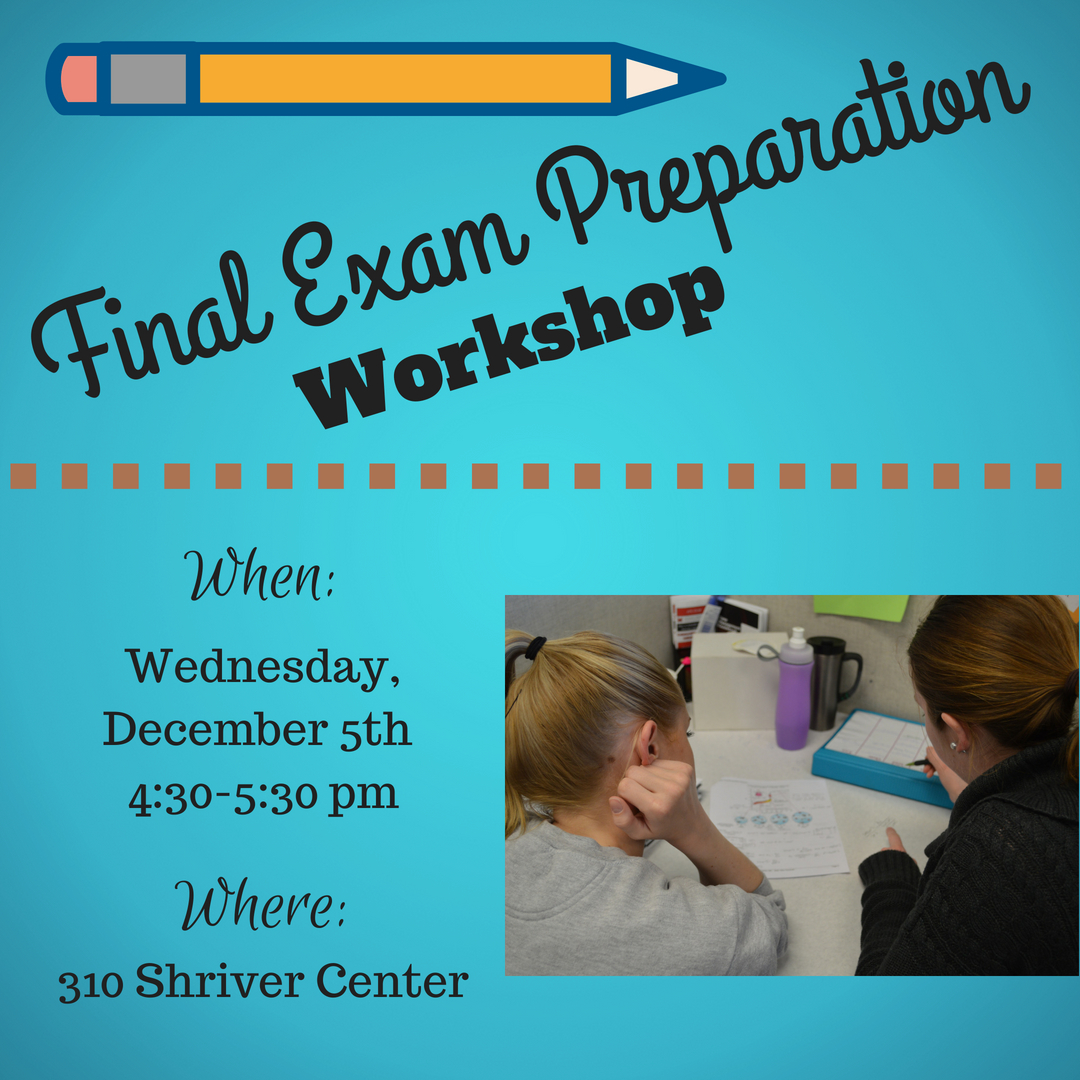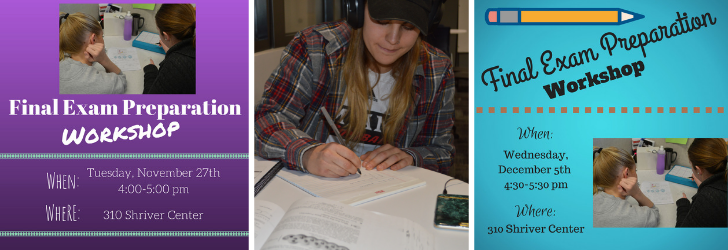Final Exam Tips from Rinella


How can students most effectively manage the stress of Final Exam week? The Rinella Learning Center has several tips to help students (and those who support them!) maximize their achievement during Finals Week. Through planning ahead and staying organized, students can alleviate any uncertainty they may feel and position themselves for success!
Knowledge is Power.
Some classes have cumulative exams (exams covering all the material from the entire semester), some classes have term exams (exams covering material only from the last test), and some classes have papers or research projects. Does your student know which classes they have exams for? Have they met with their professor during office hours, calculated their grade, and checked Miami’s official Final Exam Schedule? Generally, exams are about 2 hours long. Some exams may fall at times that are outside normal class periods. Keep in mind, too, that students may be able to change their schedule either if two or more exam times conflict, or if they have an excessive number of exams in one day.
Study Smarter, Not Harder.
We recommend beginning the study process for final exams about two weeks ahead of time. Equally as important is how the student studies: rather than spending hours the night before a test staying up late and cramming, we recommend periodic 30-45 minute study blocks throughout the two-week period prior to the exam. During those times, the student should try to accomplish active learning tasks: writing summaries, working through sample problems, and testing themselves (see below). These active learning tasks allow students to interact with the information they’ve gained, rather than simply re-read it or review it. Lastly, it may help students to study outside their residence halls. Why not encourage students to study in empty classrooms? After all, they will have to take the test in a classroom, so studying in one will help allow them to feel more comfortable in such spaces.
Self-Testing is Key.
When preparing for a test, the most important study tool is testing oneself. Encourage students to recreate the test-taking environment as much as possible before the test, as this will lessen their anxiety and help them feel more prepared during the actual test itself. When self-testing, students should try to solve practice problems, write down key concepts from memory, or complete a study guide WITHOUT HELP from notes, textbooks, or other resources. After completing the self-testing exercise, students can then refer back to the original resources to see what they got right or wrong. This process helps identify gaps in their knowledge while also reinforcing the information they already know!
Stress Less.
Does your student have a lot of anxiety or worry about final exams? It may help them to learn and practice relaxation techniques, so that they can address that anxiety in a productive way. In addition to relaxation techniques, encourage the student to utilize positive self-talk and affirmations to help them feel more empowered
